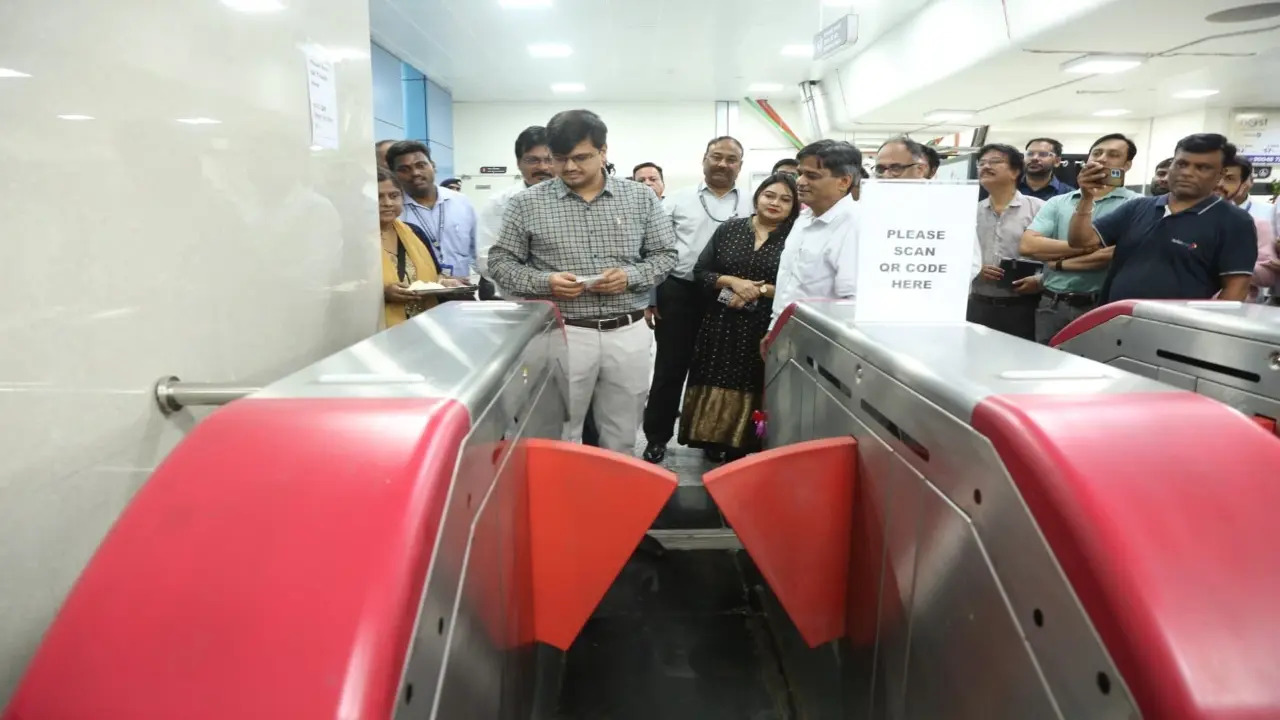The City and Industrial Development Corporation (CIDCO) has launched a QR code-based paper ticketing system on Navi Mumbai Metro Line-1. This new system, which went live on June 17, 2025, replaces the traditional token method, aiming to streamline the fare collection process and enhance commuter convenience. The introduction of QR code ticketing marks a pivotal step in CIDCO’s efforts to modernise the metro’s fare collection system.
Commuters can now obtain a paper slip embedded with a QR code, which can be scanned at entry and exit points, eliminating the need for physical tokens or smart cards. This upgrade is part of a broader initiative to improve operational efficiency and reduce congestion at ticket counters. To support the new ticketing system, CIDCO has undertaken a comprehensive overhaul of the Automatic Fare Collection (AFC) infrastructure. The upgraded system is designed to accommodate various payment methods, including paper QR tickets, mobile QR tickets, and the National Common Mobility Card (NCMC). This flexibility ensures that commuters have multiple options to choose from, catering to diverse preferences and technological access.
Looking ahead, CIDCO plans to further enhance the commuter experience by introducing additional digital ticketing features. Upcoming initiatives include a mobile ticketing application for smartphone-based bookings, WhatsApp-based ticketing for ticket generation via messaging, and NCMC integration for a unified transport payment platform. These advancements aim to provide commuters with a seamless and efficient travel experience. Recognising the diverse needs of its commuter base, CIDCO has ensured that the new ticketing system remains inclusive. While digital tools are being introduced, printed ticket options are still available to accommodate those without smartphones. This approach ensures that all commuters, regardless of their technological access, can benefit from the upgraded system.
The new system also enables CIDCO to collect real-time data on ticket usage, peak travel hours, and passenger volume. This data-driven approach allows for better scheduling, crowd management, and operational decision-making, ultimately leading to improved service delivery and commuter satisfaction. The implementation of QR code ticketing on Navi Mumbai Metro Line-1 is a step towards creating an integrated urban mobility network. By adopting modern fare collection technologies, CIDCO is laying the groundwork for a unified transport system that links metro, bus, and other transit modes under a common ticketing method. This initiative aligns with the broader vision of developing sustainable and efficient urban transportation solutions.
The introduction of QR code-based paper ticketing on Navi Mumbai Metro Line-1 represents a significant advancement in urban mobility. By modernising fare collection, enhancing digital integration, and adopting an inclusive approach, CIDCO is setting a benchmark for other cities to follow in creating efficient, sustainable, and commuter-friendly public transportation systems.
Also Read :Kolkata Metro Enhances Connectivity with Tunnel Integration


